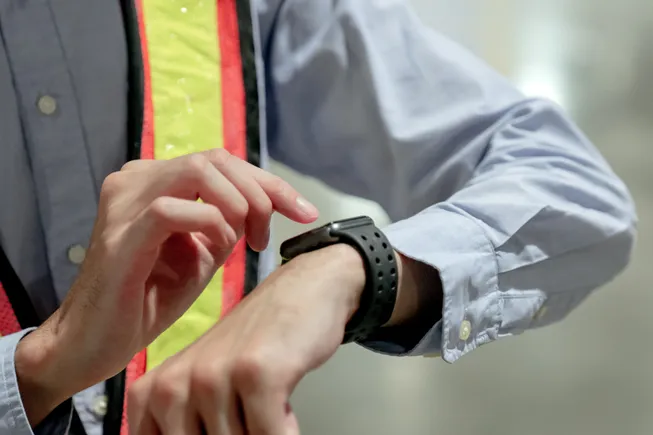Employers must be wary that their wearable technology programs — particularly those that track any sort of health information — do not break anti-discrimination laws, the U.S. Equal Employment Opportunity Commission said in guidance released Dec. 19.
The newly released fact sheet explains how employers may approach and use wearable technology in the workplace, including watches, rings, glasses, helmets and other devices, with particular guidance around collecting medical information and biometric data.
Employers that use wearables that collect information about an employee’s health conditions or do diagnostic testing may be conducting “medical examinations” under the Americans with Disabilities Act, EEOC said, and they may also be making “disability-related inquiries” under the ADA if employees are directed to provide further health information in connection with wearable use.
In both cases, the ADA has strict limitations in place on how such inquiries or examinations may take place. For example, such inquiries are allowed when required by federal safety laws or regulations; for employees in positions affecting public safety; and if they are a voluntary part of an employer’s health program.
“If an employer uses wearables to conduct disability-related inquiries or medical examinations outside one of these exceptions to the ADA prohibition, then those inquiries or examinations may pose compliance risks,” according to the fact sheet.
The fact sheet provides multiple examples of how an employer could violate nondiscrimination law with its approach to wearables, such as:
- Using health information to infer an employee is pregnant and then firing the employee or putting them on unpaid leave unprompted.
- Relying on data from wearable technology that produces less accurate results for people with darker skin and then making adverse employment decisions against those workers because of that data.
- Tracking an employee on a break who is taking a loved one to a health center and then later inquiring about why the employee visited the center, which could elicit genetic information in violation of the Genetic Information Nondiscrimination Act.
- Requiring only one race or ethnicity to use a wearable to collect health information.
“It’s important that employer[s] keep in mind that some uses of wearables can violate federal antidiscrimination laws,” EEOC Chair Charlotte A. Burrows said in a statement. “If they do choose to bring this technology into the workplace, employers must be vigilant in following the law to ensure that they do not create a new form of discrimination. There is no high-tech exemption to the nation’s civil rights laws.”
Many employers have begun experimenting with wearable technology to prevent injuries and boost performance. Frito-Lay, for example, decided to boost use of the tech in 2021 after it reduced injuries and lost work time by 67% year over year in its manufacturing and distribution centers.
